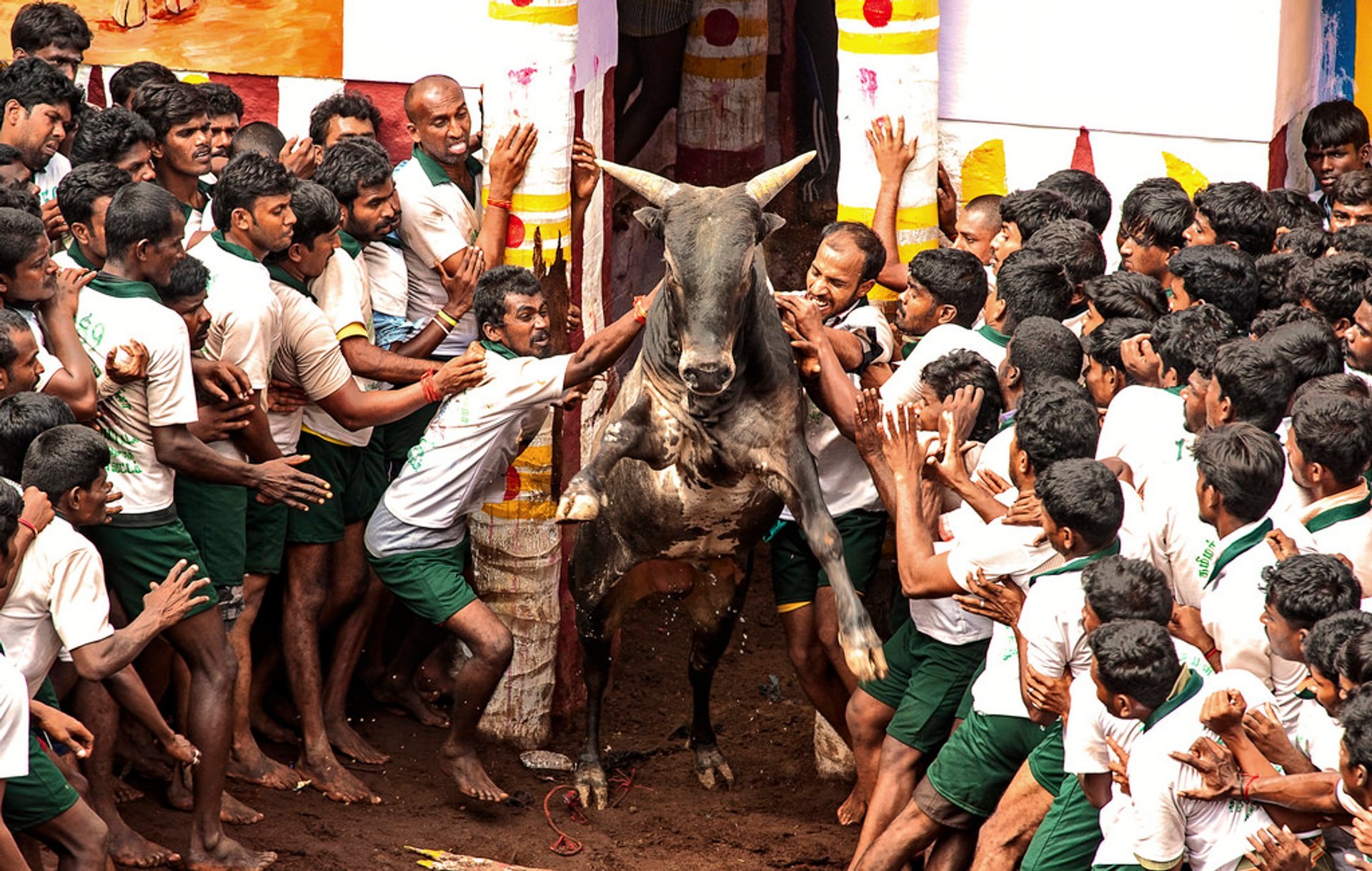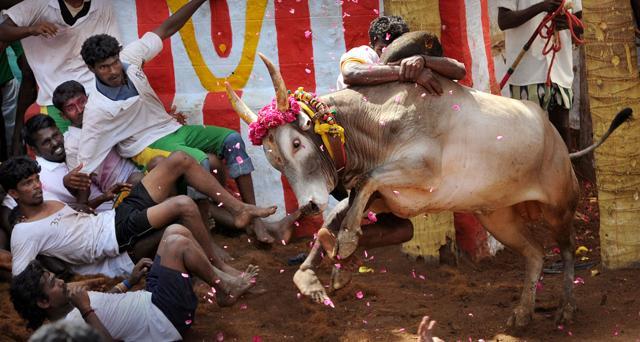About Jallikattu

Introduction:
Jallikattu, a traditional bull-taming sport originating from Tamil Nadu, encapsulates the rich cultural heritage of the region. Rooted in centuries-old traditions, this adrenaline-pumping spectacle showcases the bravery and resilience of Tamil communities. As we embark on this journey, our aim is to unravel the layers of Jallikattu, exploring its historical roots, unraveling its rituals, and understanding its contemporary significance.
Historical Evolution

Jallikattu's history is a tapestry woven with threads from the Sangam era, where literary references point to its existence. Over the centuries, various dynasties, including the Cholas and Pandyas, have left their imprint on the sport, shaping its rules and cultural significance. Despite facing bans and controversies in recent decades, Jallikattu stands resilient, maintaining its authenticity and serving as a living link to Tamil Nadu's past.
Rituals and Traditions
The rituals associated with Jallikattu are deeply intertwined with Tamil culture and religious practices. From the ceremonial preparation of the bulls to the symbolic gestures performed by participants, each tradition holds profound meaning. The event is not merely a physical challenge but a spiritual and communal experience, fostering a sense of unity among participants and spectators alike.
The Bull-Taming Ritual

The bull-taming ritual, the centerpiece of Jallikattu, is a spectacle of strength, skill, and courage. Participants undergo rigorous physical and mental preparation, showcasing their prowess in taming ferocious bulls. The event is a carefully choreographed dance between man and beast, where ancient techniques and contemporary strategies converge to create a breathtaking display of bravery.
Jallikattu and Society
Beyond being a sport, Jallikattu plays a pivotal role in shaping societal bonds. It transcends demographic boundaries, bringing together people from diverse backgrounds during local festivals. The collective spirit of the community is heightened as individuals unite to celebrate their shared heritage, creating lasting connections and memories.
Controversies and Legal Battles

Jallikattu has not been immune to controversy, particularly concerning animal welfare and participant safety. Debates surrounding the ethical treatment of bulls during the event and safety concerns for participants have led to legal battles and occasional bans. Balancing the preservation of tradition with evolving societal expectations remains a challenge, prompting ongoing dialogue and scrutiny.
Modern Adaptations
In the face of modernity, Jallikattu has adapted without losing its cultural core. The advent of technology and media has brought the sport to a global audience, fostering a renewed interest in its history and traditions. The juxtaposition of ancient practices within the framework of contemporary society adds a layer of complexity to the narrative of Jallikattu.
Voices from the Arena

To humanize the narrative, we turn to the voices of those directly involved in Jallikattu. Interviews with seasoned participants, passionate organizers, and dedicated community members offer personal insights into the emotional and cultural dimensions of the sport. Their stories provide a firsthand account of the challenges, triumphs, and pride associated with Jallikattu.
Educational Initiatives
Educational programs play a crucial role in preserving and promoting Jallikattu. Initiatives aimed at educating the younger generation about the cultural significance, historical roots, and safety protocols associated with the sport contribute to its sustainable future. Bridging the gap between tradition and modern education ensures that the essence of Jallikattu is passed down through generations.
Future Prospects and Preservation
As we look towards the future, the preservation of Jallikattu requires a delicate balance between tradition and contemporary expectations. Ongoing efforts, including cultural festivals, awareness campaigns, and educational initiatives, contribute to the conservation of this age-old tradition. The active participation of the younger generation, coupled with a commitment to ethical practices, holds the key to ensuring Jallikattu's continued presence as a vibrant cultural heritage of Tamil Nadu.
Conclusion:
In conclusion, Jallikattu, deeply embedded in Tamil Nadu's cultural fabric, reflects a resilient blend of tradition and modernity. From its ancient roots to the challenges of today, the sport remains a poignant narrative of courage and community spirit. As we've journeyed through its history, rituals, and societal impact, the future of Jallikattu hinges on a delicate balance between preserving its heritage and adapting to evolving perspectives. The voices from the arena, echoing passion and pride, underscore the enduring significance of this age-old tradition, ensuring that its legacy resonates for generations to come.


